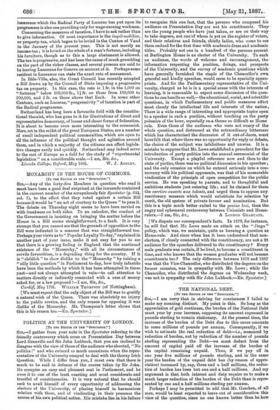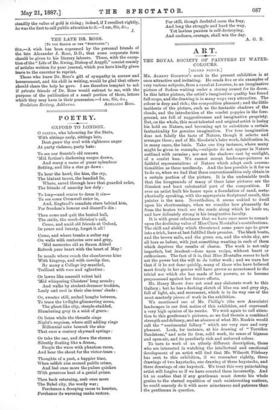THE NATIONAL DEBT.
[To THE EDITOR or TEE Erigorms."] Sus,—I am sorry that in striving for conciseness I failed to- make my meaning. distinct. My point is this. So long as the appreciation of gold continues, the burden of the National Debt must year by year increase, supposing its amount expressed in pounds sterling to remain stationary. At the present time, the increase of the burden of the Debt due to this cause amounts- to some millions of pounds per annum. Consequently, if we wish to estimate the real reduction of debt—i.e., measured by reduction of burden, not by reduction of the number of pounds sterling representing the Debt—we must deduct from the amount of capital paid off the increase of the burden of the capital remaining unpaid. Thus, if we pay off in one year five millions of pounds sterling, and in the same year the burden of the unpaid debt has (by reason of appre- ciation) increased by, say, three and a half millions, the reduc- tion of burden has been but one and a half. millions. And my argument is that both interest and duty require us to make a much larger reduction of the burden of the Debt than is repre- sented by one and a half millions sterling per annum.
Perhaps I may be permitted to add that Mr. Goschen, of all men, would be least expected to leave out of consideration this view of the question, since no one knows better than he how steadily the value of gold is rising ; indeed, if I recollect rightly, he was the first to call public attention to it.—I am, Sir, Lie., J.



















































 Previous page
Previous page